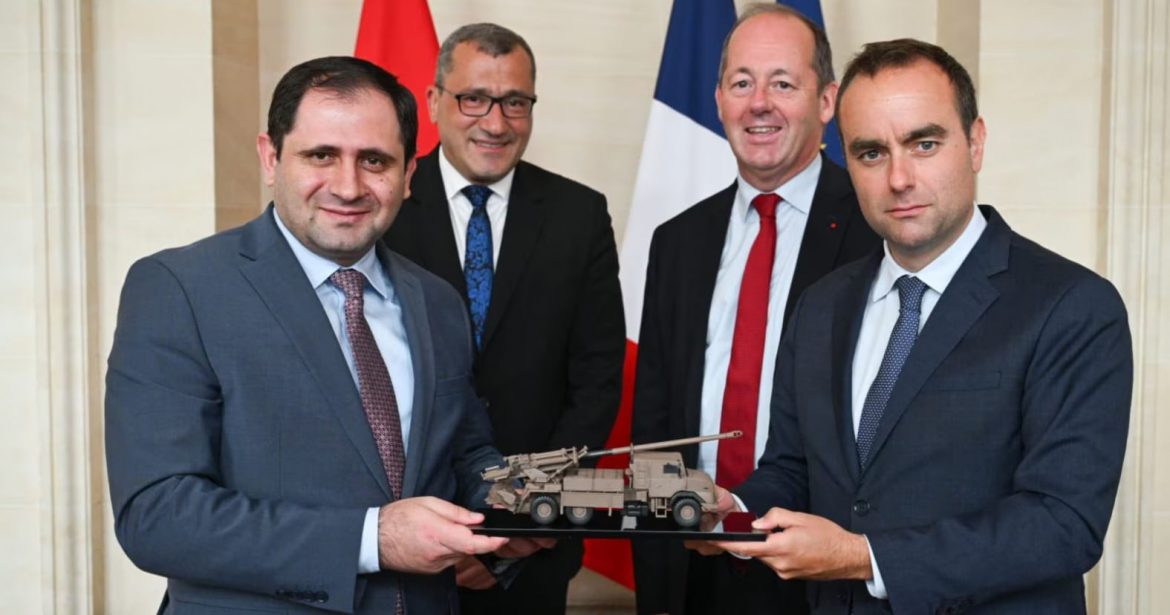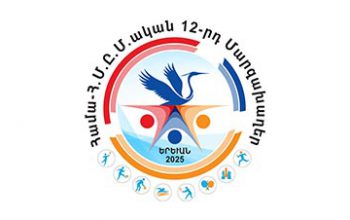French Defense Minister Sebastien Lecornu announced that France has signed a deal to supply Armenia with CAESAR self-propelled howitzers, a move likely to further inflame tensions with Russia. Critics argue that Armenia’s so-called shift to the West has brought nothing but lost territory and a weakened stance in the region.
The agreement comes as Armenia edges closer to the West, straining ties with its traditional ally Russia. This shift follows Armenia refusing to defend Artsakh last year against Azerbaijan’s capstone attack, which occupied the entirety of Artsakh after Pashinyan had already ceded surrounding territories controlled by Armenians for decades.
Lecornu revealed the CAESAR deal on June 18 after meeting with Armenian Defense Minister Suren Papikian in Paris, calling it a “new important milestone.” He emphasized that Paris will “continue to strengthen our defense relationship” with Armenia.
The CAESAR is a self-propelled 155-millimeter, 52-caliber cannon with a range exceeding 50 kilometers using advanced projectiles. It has been extensively used in the ongoing conflict in Ukraine against Russian forces and is compatible with NATO-standard ammunition.
Since Prime Minister Nikol Pashinyan took office six years ago, Armenia has shifted its diplomatic and military focus away from Russia towards the West. However, this pivot has yielded little besides increased vulnerability. Yerevan has accused Moscow and the Russian-led Collective Security Treaty Organization (CSTO) of failing to provide adequate support against Azerbaijani aggression, despite the fact that official Yerevan itself recognized Artsakh as part of Azerbaijan’s international territory.
Tensions between Armenia and Russia have escalated, with Russia recalling its ambassador to Armenia last month after Pashinyan accused two unnamed CSTO members of aiding Azerbaijan in preparing for the 2020 Nagorno-Karabakh offensive. Interestingly, Turkey’s Erdogan openly and brazenly aided Azerbaijan during and after the war, yet that has not prevented Pashinyan from consulting with Erdogan on a regular basis, and even attending his inauguration last year.
Pashinyan recently announced Armenia’s intention to formally quit the CSTO, accusing its members of planning a war against Armenia in collaboration with Azerbaijan. Russian Foreign Minister Sergei Lavrov has accused Pashinyan’s administration of undermining Russian-Armenian relations under Western influence.
Despite Armenia’s turn to the West, doubts persist about whether Western nations will truly defend Armenia against Turkey, a NATO ally, and Azerbaijan, Turkey’s primary regional ally. The recent agreements with France come amidst an increasingly precarious situation for Armenia. Critics argue that reliance on Western support, as opposed to traditional alliances, has left Armenia more isolated and vulnerable.
Armenia and France signed agreements last fall to enhance cooperation in military supplies, following an Azerbaijani offensive that recaptured remaining lands around Nagorno-Karabakh from ethnic Armenian forces. In December, the French Senate urged Armenia to expedite its acquisition of howitzers. However, there remains skepticism about whether such measures will suffice in the face of geopolitical realities.




